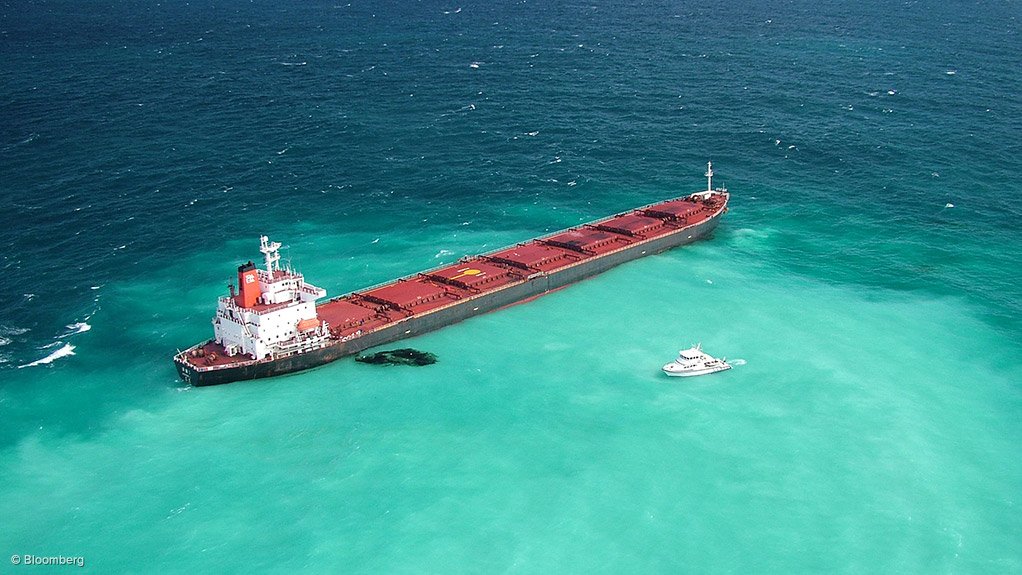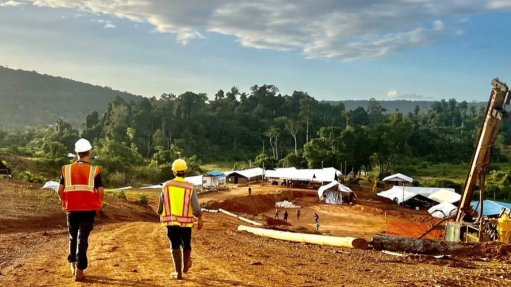Resources industry welcomes Unesco's Great Barrier Reef decision
PERTH (miningweekly.com) – The Australian government and resources industry have welcomed a decision by the United Nations Educational, Scientific and Cultural Organisation (Unesco) World Heritage Committee not to place the Great Barrier Reef on the ‘in-danger’ list.
The 21-member committee this week took a final decision on the matter, which upheld an earlier draft decision, and which Environment Minister Greg Hunt said reflected the effort of Australia to carefully protect the national and international asset through the development of the Reef 2050 Plan.
“This is great news for Australia. It's great news for Queensland. And it's great news for the Great Barrier Reef,” Hunt said.
“From banning all capital dredge disposal in the entire World Heritage Area, to increasing monitoring efforts, restricting port development and ensuring the quality of the water entering the reef is improving, the Australian and Queensland governments are wholly committed to ensuring the future protection of the reef.”
The Minister pointed out that some A$2-billion in funding would be invested in managing and protecting the reef over the coming decade, with investment exceeding A$485-million in 2014/15 alone.
Hunt this week also announced a further A$8-million to fund the roll-out of a monitoring and reporting programme for the Great Barrier Reef, which forms part of the Reef 2050 Plan.
“The Reef 2050 Plan is one of the most important commitments the government has made to protect the reef now and into the future,” Hunt said.
The integrated monitoring and reporting programme, to be coordinated by the Great Barrier Reef Marine Park Authority, would monitor biophysical, heritage, water quality, social and economic changes that affect the reef and use this information to adaptively manage the Great Barrier Reef World Heritage Area.
It would measure and report on the performance of actions towards achieving the plan's targets, objectives and outcomes, with areas such as the Fitzroy, the Whitsundays and the Burdekin to receive additional monitoring.
“Conditions affecting the reef are always changing and our actions to protect the Reef need to take this into account. An up-to-date understanding of the condition of the Reef and key risks to its health have underpinned our advice to the World Heritage Committee,” the Minister added.
“This programme will help us inform Australians and people around the world about the condition of the reef. It will provide evidence of our actions to ensure the Great Barrier Reef retains the World Heritage status it deserves.”
Meanwhile, the Queensland Resources Council also welcomed Unesco’s decision, with CEO Michael Roche saying that the measures in the Reef 2050 Plan on ports and dredging took existing strong regulations to some of the toughest standards in the world.
“The World Heritage Committee has recognised Australia’s huge strides in the management of the reef and has based its decision on facts and science. The Great Barrier Reef is the best managed reef system in the world and that management has been lifted to an even higher level through the Reef 2050 long-term sustainability plan,” Roche said.
The Minerals Council of Australia has urged that the momentum continue and that the necessary management actions to ensure the Reef’s long-term protection be implemented.
However, the industry body’s deputy CEO, John Kunkel, expressed concern over the increased restrictions on certain activities critical for port development, such as dredging.
“These activities are already highly regulated and the imposition of further restrictions will act only to hinder future industry growth.”
He noted that responsible economic development and the long-term protection of the Great Barrier Reef were not mutually exclusive, adding that positive environmental, social and economic outcomes could be achieved where management decisions were founded in sound science and through government, industry and community partnerships.
Comments
Press Office
Announcements
What's On
Subscribe to improve your user experience...
Option 1 (equivalent of R125 a month):
Receive a weekly copy of Creamer Media's Engineering News & Mining Weekly magazine
(print copy for those in South Africa and e-magazine for those outside of South Africa)
Receive daily email newsletters
Access to full search results
Access archive of magazine back copies
Access to Projects in Progress
Access to ONE Research Report of your choice in PDF format
Option 2 (equivalent of R375 a month):
All benefits from Option 1
PLUS
Access to Creamer Media's Research Channel Africa for ALL Research Reports, in PDF format, on various industrial and mining sectors
including Electricity; Water; Energy Transition; Hydrogen; Roads, Rail and Ports; Coal; Gold; Platinum; Battery Metals; etc.
Already a subscriber?
Forgotten your password?
Receive weekly copy of Creamer Media's Engineering News & Mining Weekly magazine (print copy for those in South Africa and e-magazine for those outside of South Africa)
➕
Recieve daily email newsletters
➕
Access to full search results
➕
Access archive of magazine back copies
➕
Access to Projects in Progress
➕
Access to ONE Research Report of your choice in PDF format
RESEARCH CHANNEL AFRICA
R4500 (equivalent of R375 a month)
SUBSCRIBEAll benefits from Option 1
➕
Access to Creamer Media's Research Channel Africa for ALL Research Reports on various industrial and mining sectors, in PDF format, including on:
Electricity
➕
Water
➕
Energy Transition
➕
Hydrogen
➕
Roads, Rail and Ports
➕
Coal
➕
Gold
➕
Platinum
➕
Battery Metals
➕
etc.
Receive all benefits from Option 1 or Option 2 delivered to numerous people at your company
➕
Multiple User names and Passwords for simultaneous log-ins
➕
Intranet integration access to all in your organisation





















